
[ad_1]
Politics
/
August 28, 2024
Both Trump and JD Vance are incapable of hiding their lack of basic humanity.
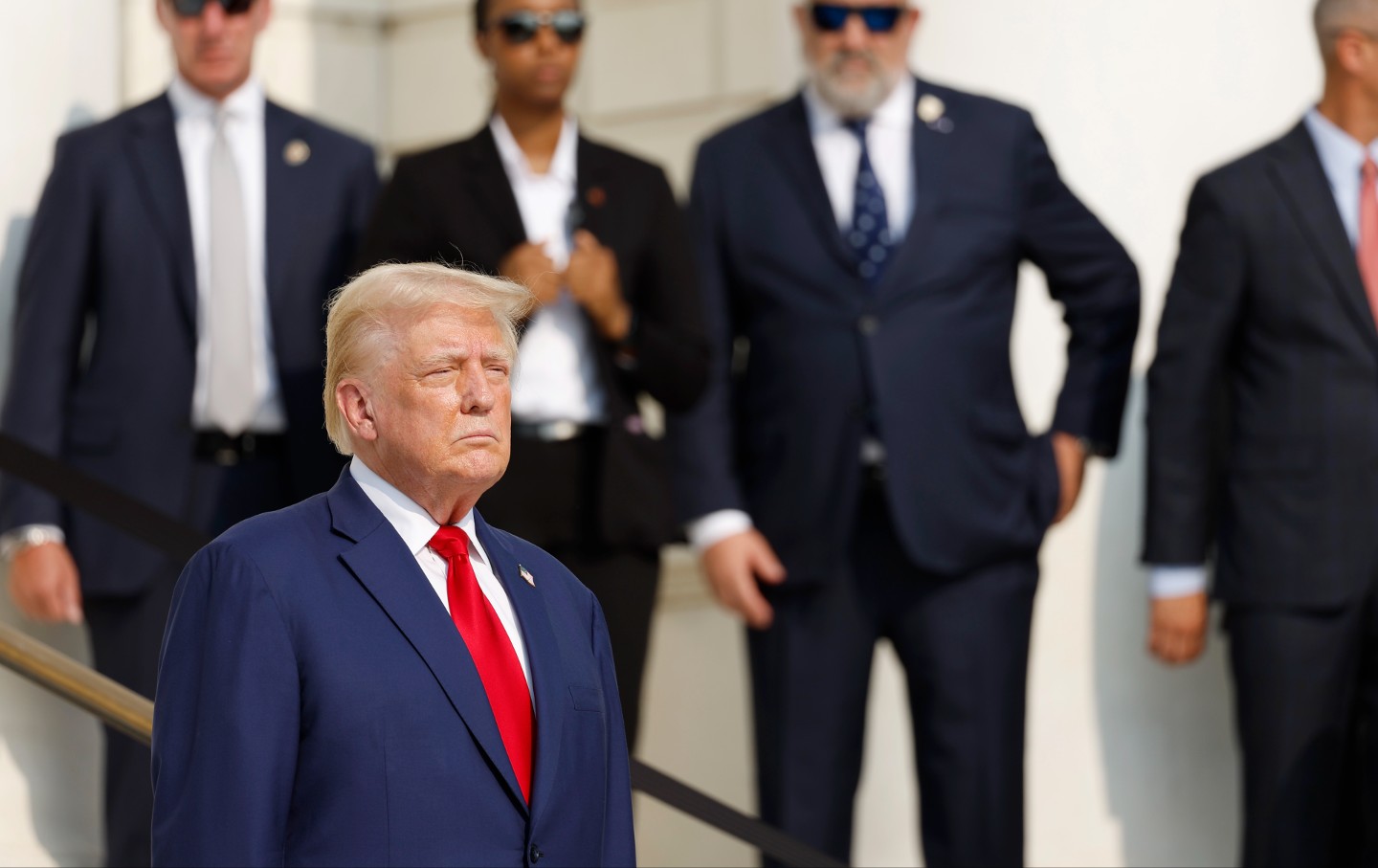
Donald Trump looks on during a wreath-laying ceremony at the Tomb of the Unknown Soldier at Arlington National Cemetery on August 26, 2024, in Arlington, Virginia.
(Anna Moneymaker / Getty Images)
Tuesday’s political news cycle delivered a crash course in the fundamental outlook of the Trumpified Republican Party, via a pair of stories conveying the deep, reflexive contempt that Donald Trump has helped spread throughout the party’s upper reaches. This contempt extends not merely to the GOP’s political rivals but also to basic humanity and decency.
The Trump story came from a report by NPR’s Quil Lawrence and Tom Bowman about an ugly and cynical photo-op the Trump campaign staged at Arlington National Cemetery on Monday. Trump and his handlers had barged into Section 60 of the cemetery grounds, where recent war fatalities are laid to rest, in order to photograph the candidate at the gravesites of 13 soldiers killed during the US withdrawal from Afghanistan. The event culminated in a typically tasteless and inapposite shot of Trump giving a smiling thumbs-up at the site—not exactly a study in somber, statesmanlike mourning.
But, as Lawrence and Bowman reported, the photo-op was not merely an exercise in bad taste. Trump and his entourage had callously violated the cemetery’s strictures against using the graves of soldiers as a political backdrop, along with its policy against having anyone other than Arlington staff members take official photos there. And Trump staffers had profanely insulted the cemetery official trying to prevent the photo-op from happening, with some sort of altercation ensuing. “Federal law prohibits political campaign or election-related activities within Army National Military Cemeteries, to include photographers, content creators or any other persons attending for purposes, or in direct support of a partisan political candidate’s campaign,” the cemetery said in a statement to NPR. “Arlington National Cemetery reinforced and widely shared this law and its prohibitions with all participants.” The statement also confirmed that “there was an incident, and a report was filed.”
Read more of our campaign coverage
Pressed for comment on the incident, the Trump campaign went into high-dudgeon overdrive. Campaign spokesman Steven Cheung, a former flack for the Ultimate Fighting Championship who likes to mimic his boss’s extreme personal attacks, fiercely denied that there was a physical altercation, asserting, “We are prepared to release footage if any such defamatory claims are made.” He then proceeded to deliver what he likely thought was a body slam from the ropes: “The fact is that a private photographer was permitted on the premises and for whatever reason an unnamed individual, clearly suffering from a mental health episode, decided to physically block members of President Trump’s team during a very solemn ceremony.”
That’s right: Cheung smeared the Arlington official trying to prevent the exploitation of the cemetery grounds for political gain as a random, erratic character in the midst of “a mental health episode” who apparently provoked Trump’s handlers by “deciding to physically block” their access to the site. This line of attack, among other things, isn’t the best look for a MAGA movement that launched a series of vicious salvos at Tim Walz’s neurodivergent son at the Democratic National Convention; it’s also not the greatest epilogue for the right’s many fizzled efforts to cast doubt on the integrity of Walz’s own military service. But it’s entirely of a piece with Trump’s consistently derisive and dismissive view of soldiers and military service, and his determination to treat the military as a wholly owned subsidiary of the Trump Organization.
What’s even more striking about this episode is how completely it undermined one of the only politically successful parts of last month’s Republican National Convention. The convention aired a powerful video featuring survivors of the soldiers killed, who recounted the trauma of losing their family member—and then explaining that they never heard a word of condolence from President Joe Biden. (Biden, despite his well-known history of offering genuine empathy to people mourning devastating family losses, also has a traditional politician’s aversion to being confronted with the direct fallout from his policy decisions.) Several family members then appeared on the convention stage to denounce Biden further, and offer up their endorsements of Trump. It was a moment that appeared to show Trump in a rare relatably human, and even somewhat compassionate, light. (Of course, the convention segment included nothing about Trump’s own role, while president, in making the conditions of the Afghanistan withdrawal so hazardous, and didn’t include testimonials from the families of seven soldiers killed in the suicide attack—or note Trump’s own aversion to attending the ceremonial “dignified return” of soldiers’ remains at Dover Air Force Base, spurred by the anger of the father of the Navy SEAL soldier killed in the strike ordered on Yemen in 2017.)
Current Issue

But now, in the heat of a campaign where Trump has been steadily losing ground, he and his handlers have reverted to type. Gone are the niceties of image management. Instead, the campaign has seized upon the gravesites of dead soldiers as crude political props—while training rhetorical scorn and alleged body blows on anyone seeking to preserve the private, solemn character of remembrance for the war dead. It takes no small effort of the will to recall that Michael Dukakis’s 1988 presidential campaign was disastrously derailed by his ill-advised effort to don a military helmet while taking a ceremonial tank ride; somewhere outside Boston, Dukakis must be shaking his head in wonderment at the depravity of Team Trump and the unfairness of the cosmos.
The same brutal, careless outlook surfaced yet again from the number-two spot on the Republican ticket. The JD Vance of the present has managed to recede even further into the background as the Trump campaign romances third-party crank candidate Robert F. Kennedy Jr., but the JD Vance of the past is filling the void nicely. On Tuesday, the Harris campaign posted a recording of a 2021 Vance speech to the Christian Virtue leadership forum. In it, Vance launches into still another detour into his bizarre natalist obsession with childless women. Where he’d elsewhere dismissed people without kids as free riders on the sociobiological social contract—lacking enough “skin in the game” to be entrusted with serious grown-up responsibility—here he lays into the subgroup of childless women teachers.
“Our conservative idea is that a parent and a family should determine what ideas children learn and are brought up with,” Vance begins, citing a long-standing talking point in right-wing efforts to undermine public education and single-parent, dual-earner, and otherwise nontraditional families. He then supplies an example: “So many leaders of the left, and I hate to get so personal about this” Vance says (spoiler alert: Vance, in fact, does not hate to get personal), “but they’re people without kids trying to brainwash the minds of our children. And that really disorients me and that really disturbs me. Randi Weingarten is the head of one of the most powerful teachers’ unions in the country. She doesn’t have a single child. If she wants to brainwash and destroy the minds of children, she should have some of her own and leave ours the hell alone.”
Popular
“swipe left below to view more authors”Swipe →
Leave aside for the moment that the model of education Vance proposes is in fact antithetical to how public schools should function in a democracy; they have the explicit mandate of inculcating civic virtues that aren’t typically the priorities of domestic pedagogues. Leave aside as well the fact that for generations women educators were forced to leave teaching positions when they had children under the more standard-model social engineering sanctioned by natalist dogma—and that many educators in Vance’s Catholic faith are, in fact, unmarried and childless nuns. Consider instead that Randi Weingarten, despite what Vance says, is stepmother to the two daughters of her wife, Rabbi Sharon Kleinbaum. The point of Vance’s ugly, homophobic attack, in other words, is to deny the legitimacy of Weingarten’s status as a parent—the same stunt that his ideological comrade in the House, Marjorie Taylor Greene, tried to pull in a congressional hearing last year.
It’s also worth stressing that the logic of Vance’s remarks show that he’s not opposed to “brainwashing” America’s children on principle; instead, he favors letting right-wing parents do the relevant indoctrination. That would ostensibly be Weingarten’s own privilege were she to buckle down and have some kids of her own.
Vance candidly aired his reasoning in a podcast interview recorded just days ahead of his appearance at the Christian Virtue leadership forum. There he called for the right’s ideological seizure of the civil service, declaring, “We need a de-Ba’athification program in the U.S.… We should seize the administrative state for our own purposes. We should fire…every civil servant in the administrative state. Replace them with our own people.” In other words, Vance’s real grudge against Weingarten isn’t that she’s warping the minds of children; it’s that she’s not warping their minds in the way he prescribes—and the way that he wants all public servants to emulate on pain of ideological dismissal. It’s the same crass and instrumentalist vision that the Trump campaign has of dead soldiers—as designated movement props, rather than human beings with moral agency of their own. And just as Trump reportedly views dead soldiers as “suckers and losers,” so does Vance regard education, and governance more broadly, as a rigid process of developing kids into ideological ventriloquist dummies for the natalist right. Both repugnant views, steeped in the brutal ideological makeover of private life, are well-documented hobbyhorses of authoritarian movements, and a responsible, democratically minded press would cite both episodes as first-order disqualifications for both members of the GOP presidential ticket. But in today’s hopelessly deranged political discourse, it was just another Tuesday.
Can we count on you?
In the coming election, the fate of our democracy and fundamental civil rights are on the ballot. The conservative architects of Project 2025 are scheming to institutionalize Donald Trump’s authoritarian vision across all levels of government if he should win.
We’ve already seen events that fill us with both dread and cautious optimism—throughout it all, The Nation has been a bulwark against misinformation and an advocate for bold, principled perspectives. Our dedicated writers have sat down with Kamala Harris and Bernie Sanders for interviews, unpacked the shallow right-wing populist appeals of J.D. Vance, and debated the pathway for a Democratic victory in November.
Stories like these and the one you just read are vital at this critical juncture in our country’s history. Now more than ever, we need clear-eyed and deeply reported independent journalism to make sense of the headlines and sort fact from fiction. Donate today and join our 160-year legacy of speaking truth to power and uplifting the voices of grassroots advocates.
Throughout 2024 and what is likely the defining election of our lifetimes, we need your support to continue publishing the insightful journalism you rely on.
Thank you,
The Editors of The Nation
Chris Lehmann
Chris Lehmann is the DC Bureau chief for The Nation and a contributing editor at The Baffler. He was formerly editor of The Baffler and The New Republic, and is the author, most recently, of The Money Cult: Capitalism, Christianity, and the Unmaking of the American Dream (Melville House, 2016).
More from The Nation
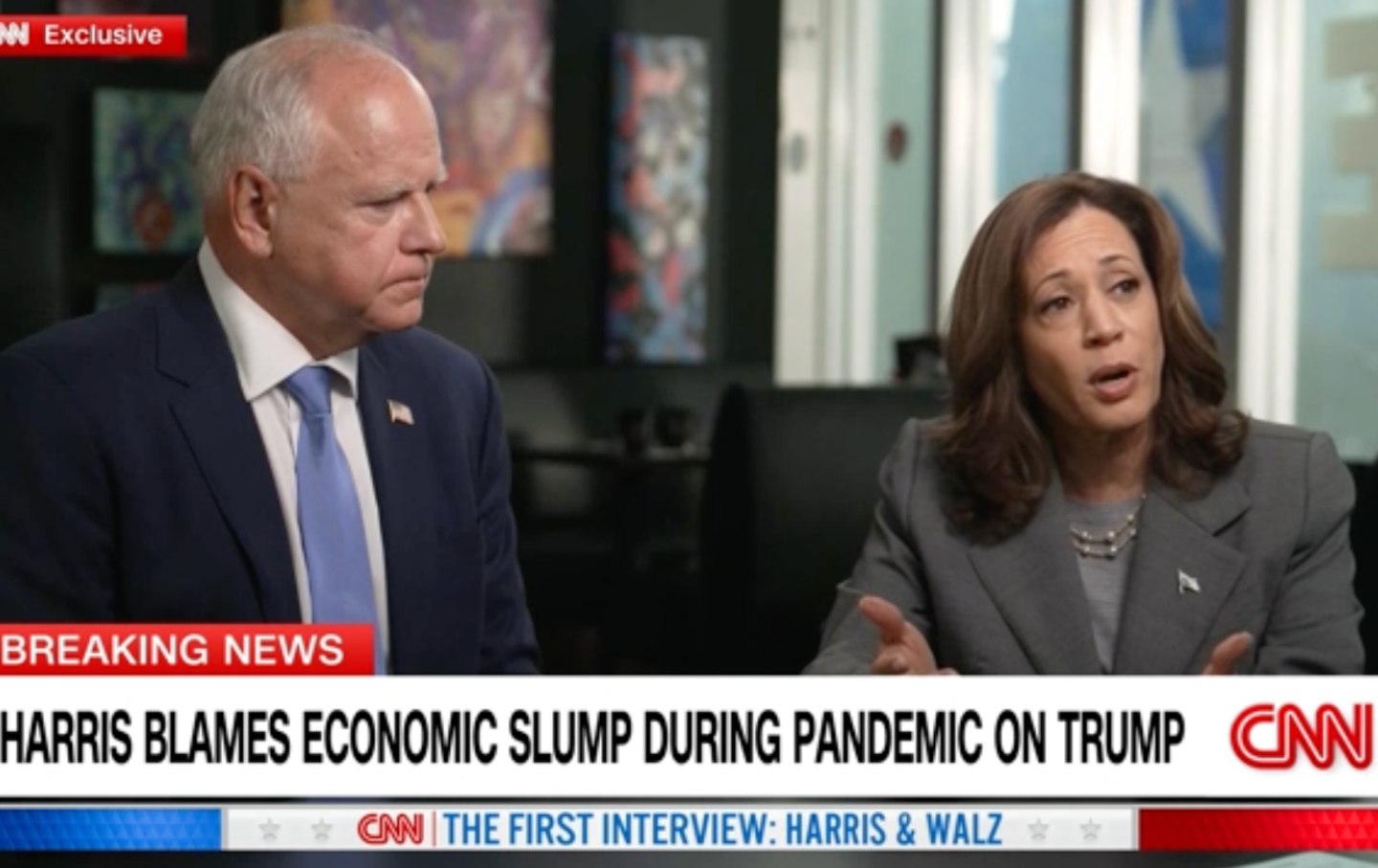
Harris and Walz held their own during an interview driven more by media-made controversies than substance.
Joan Walsh
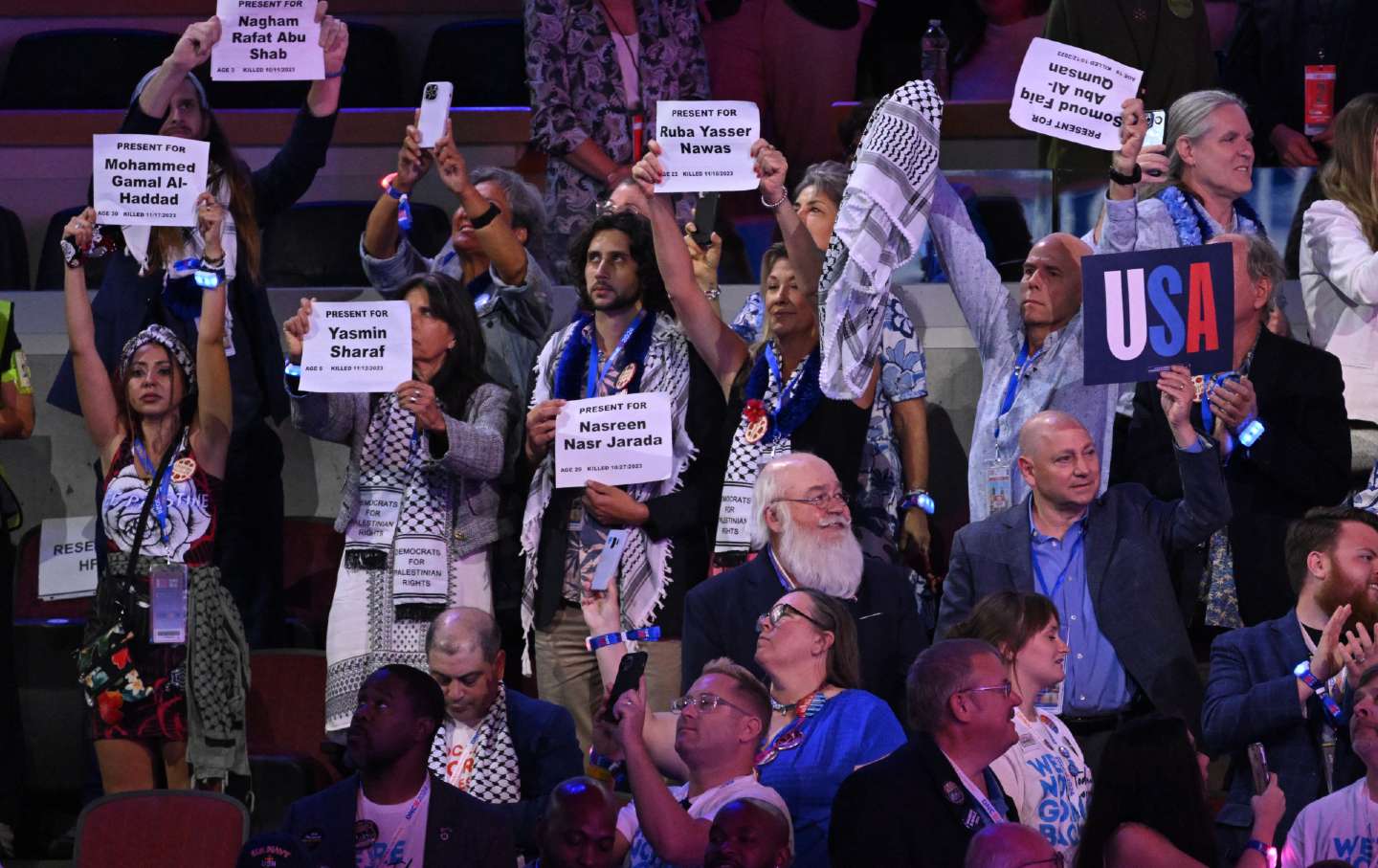
But the hope I felt when she became the nominee has been curdling into despair over her refusal to allow a Palestinian to address the convention—and her continuing silence on Gaza…
Benjamin Moser
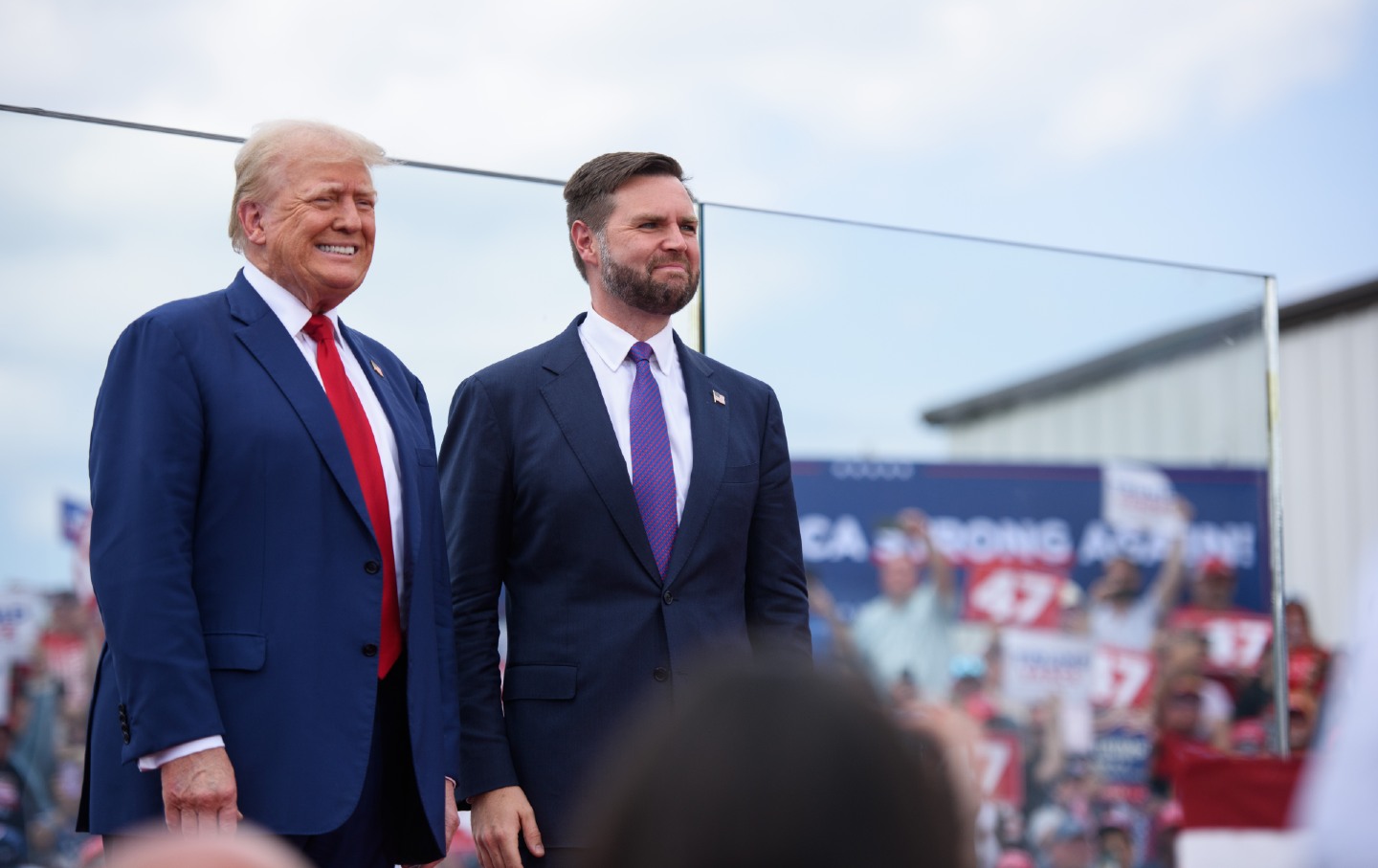
The GOP’s new league of fringe figures tries to replicate the party’s winning formula of 2016. And it just might work again.
Jeet Heer
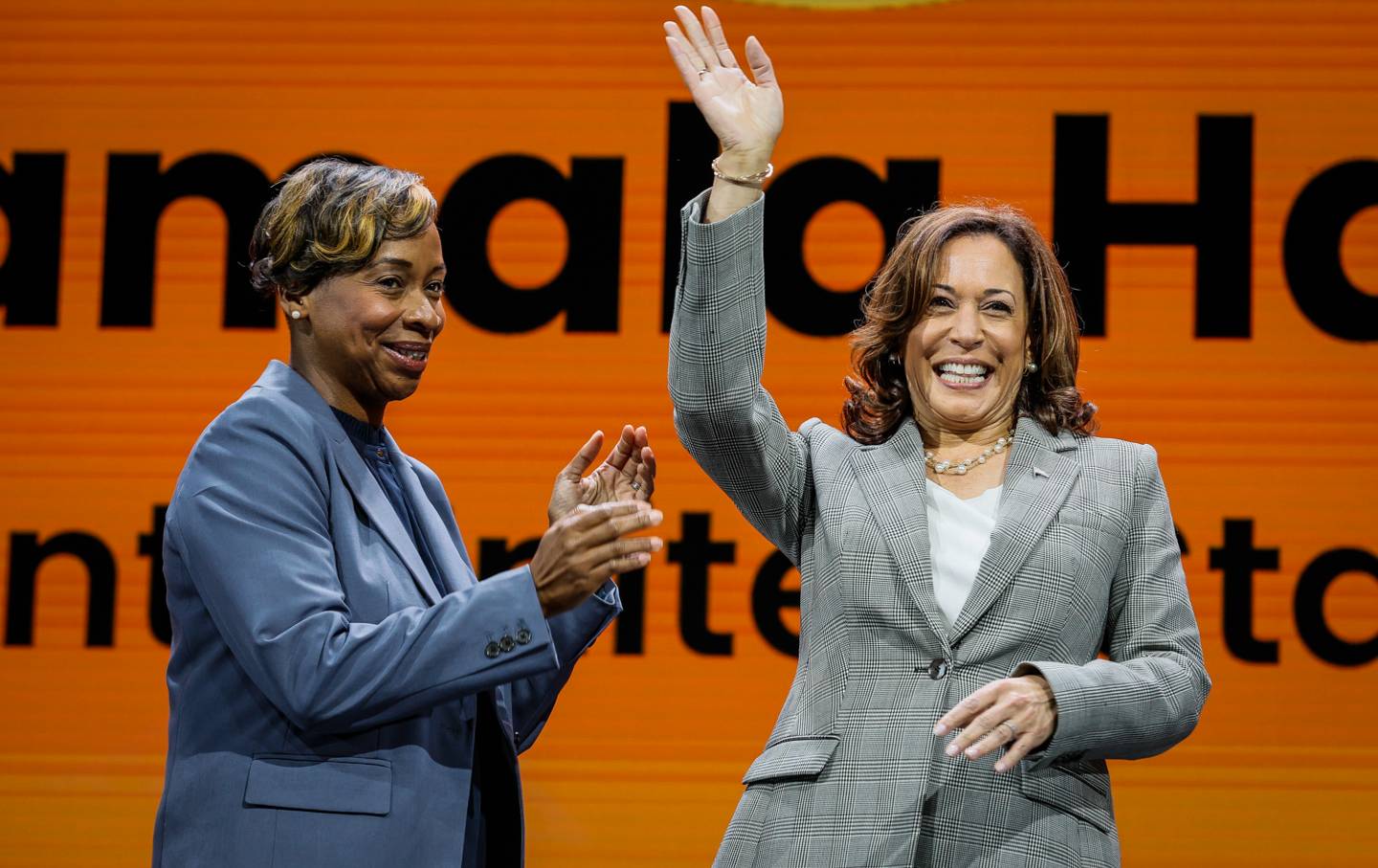
Should Kamala Harris win in November, her attorney general pick will be among her most critical cabinet appointments. Progressives should start organizing now.
Elie Mystal
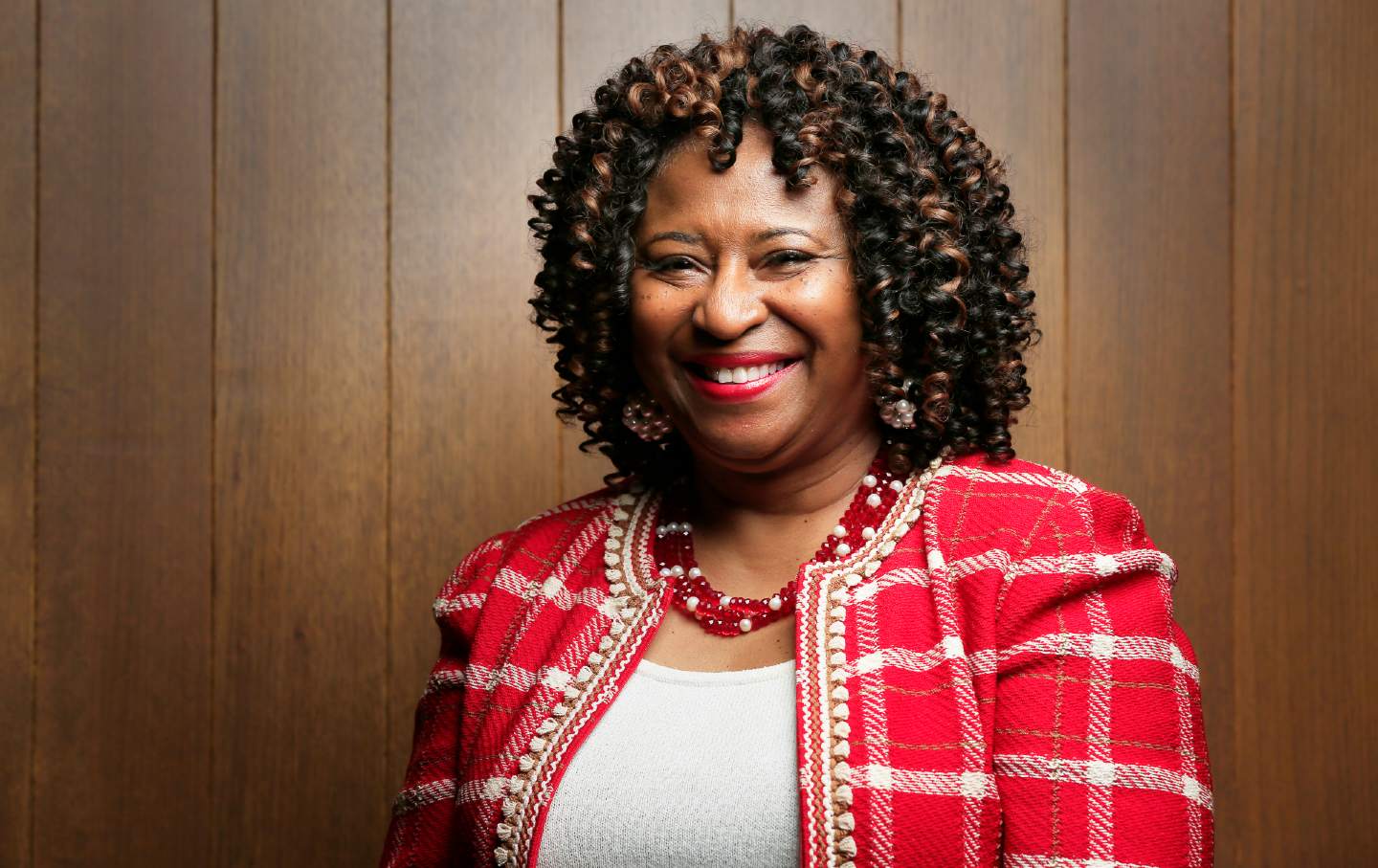
Pamela Price, the Alameda County DA, is fighting a recall vote and to defend her unwavering refusal to over-criminalize young people.
Piper French
[ad_2]